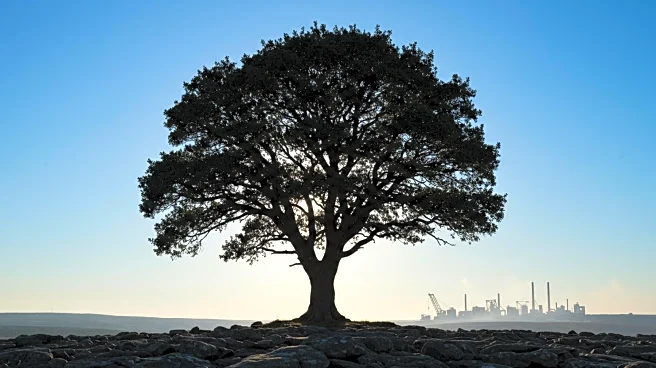What's Happening?
A U.S. district judge has denied a request by the San Carlos Apache Tribe, environmentalists, and other plaintiffs to stop the federal government from transferring land in Arizona for a copper mining project. The decision by Judge Dominic Lanza allows the federal government to proceed with the land transfer, which is scheduled for next week. The area, known as Oak Flat, is considered sacred by the Apache Tribe. Judge Lanza acknowledged the 'stark trade-offs' involved, citing economic and national security benefits against the cultural and religious significance of the land to the Apaches. The plaintiffs have been contesting the transfer for years, arguing that the federal government has not adequately considered environmental risks or the cultural value of the land. The ruling has prompted an immediate appeal to the 9th U.S. Circuit Court of Appeals.
Why It's Important?
The decision to allow the land transfer for copper mining at Oak Flat has significant implications for both economic development and cultural preservation. The project, supported by mining companies like Resolution Copper, is expected to generate substantial economic benefits, including $1 billion annually for Arizona's economy and thousands of jobs. However, it poses a threat to the cultural and religious heritage of the Apache Tribe, who consider the land sacred. This case highlights the ongoing tension between economic interests and the rights of Indigenous communities. The outcome could set a precedent for how similar disputes are handled in the future, affecting public policy and the balance between development and cultural preservation.
What's Next?
The plaintiffs, including the San Carlos Apache Tribe and the group Apache Stronghold, have filed an appeal with the 9th U.S. Circuit Court of Appeals. They continue to challenge the adequacy of the environmental review conducted by the U.S. Forest Service and argue for a comprehensive assessment of the mining project's impact. The appeal process will determine whether the land transfer can proceed as planned or if further legal action will delay the project. The case is being closely watched by both environmental and Indigenous rights groups, as well as the mining industry, for its potential implications on future land use and resource extraction policies.









